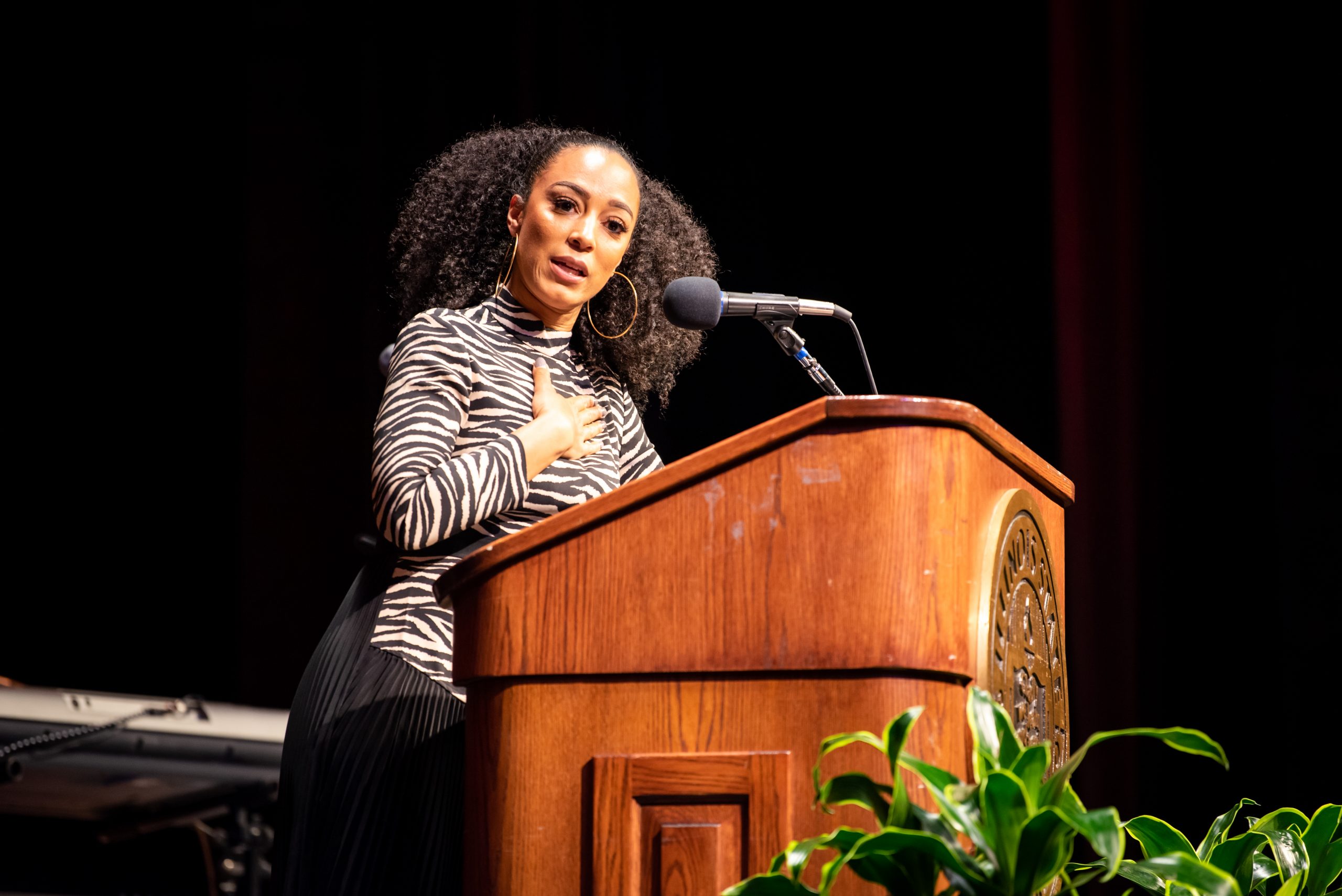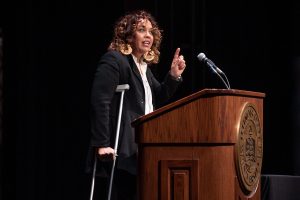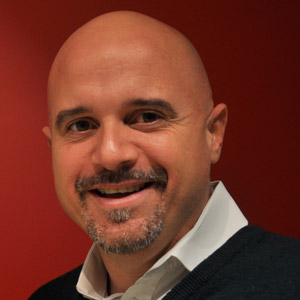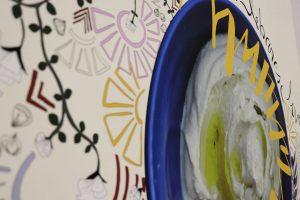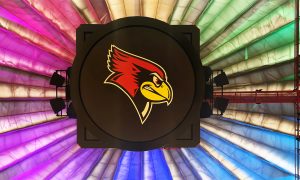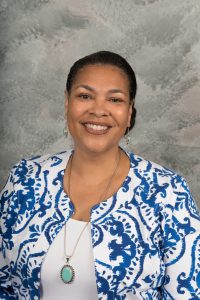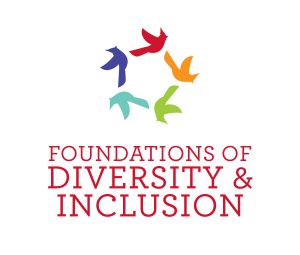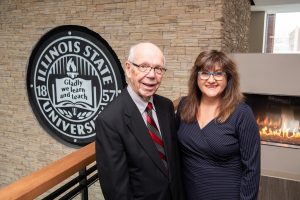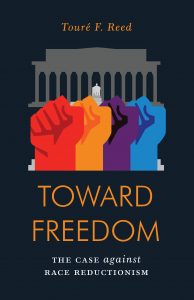Though ending very differently than it began, the 2019-2020 academic year at Illinois State was filled with initiatives, events, achievements, and scholarship that engage and reflect the University’s core value of Diversity and Inclusion.
“This list is by no means exhaustive, nor is it meant to convey a victory lap,” said Interim Assistant to the President for Diversity and Inclusion Doris Houston. “Diversity, equity, and inclusion are ongoing efforts. The Year in Review story is one piece in our accountability to the voices calling for change.”
Celebrating diversity and inspiring dialogue
Events and speakers engaged audiences and sparked ideas.
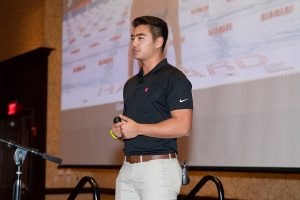
Schuyler Bailar spoke about the challenges he overcame and what he had to give up to become a barrier-breaking NCAA Division I swimmer.
Internationally celebrated speakers shined the spotlight on issues and efforts through Cultural Dinners. American swimmer and transgender activist Schuyler Bailar spoke of breaking barriers at the LGBTQA Cultural Dinner. During the Latino Cultural Dinner, journalist Soledad O’Brien urged others to see those who are underserved and disenfranchised. The campus honored Queertober, and ISU Pride educated students on National Coming Out Day. Political commentator Angela Rye inspired the campus during the Martin Luther King Jr. Cultural Dinner and On Common Grounds discussion.
The two-day Culturally Responsive Campus Community (CRCC) Conference, dedicated to the theme “Building Solidarity Across Movements,” focused on anti-racist work with talks by Dr. Estela Mara Bensimon of the Center for Urban Education and Dr. Kelly Hurst of Crossroads Antiracism Training, as well as hearing from students who took part in bringing attention to anti-blackness on campus. The events included a student-led session titled “The Roots of Anti-Blackness.”
Keynote speakers immersed audiences into long-standing battles and new directions. Author and scholar Adolph L. Reed Jr. delivered the Black History Month keynote address, speaking on the 40th anniversary of the Atlanta Child Murders. Latinx Heritage Month featured a series of talks, performances, and a lecture on “Latinx: Queer Brown Voices” by Salvador Vidal-Ortiz of American University. Faculty members marked Domestic Violence Month. A talk by artist and human rights educator Akiva K. Segan paid homage to International Holocaust Remembrance Day. The annual Charles Morris STEM Social attendees heard from alumna Candice Halbert who sparked interest in science, technology, engineering, and mathematics. The annual Black Heritage Ball honored “The African Diaspora.”
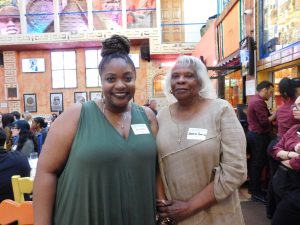
Amanda Martin, a teacher in the Chicago Public Schools, and her former STEP-UP host, Josephine Jenkins.
Communities gathered to hear the stories and recognize the achievements of students in programs designed toward inclusion, such as the First Generation Celebration, hosted by the TRIO program in University College; and the 10th anniversary of the Summer Teacher Education Partnership for Urban Preparation (STEP-UP), which connects future teachers within urban communities.
Authors and artists shared their passions and talents. Award-winning poet and educator Carmen Giménez Smith gave a public reading at University Galleries on her book Be Recorder, which was long–listed for the National Book Award in Poetry. The Publications Unit hosted Hall of Waters’ author Berry Grass and Feral Feminism journal founder Dr. Ela Przybylo. The Illinois State University Black Colleagues Association (BCA) celebrated Homecoming with a concert from Eric Roberson. Alumnus and Off-Broadway actor Eric Avilés performed his celebrated solo play about the loss of a family member to gun violence in Chicago, Where You From? What You Be About? The play Hit the Wall dove into the Stonewall Inn revolution that moved forward gay rights.
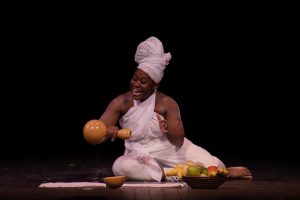
Ama Oforiwaa Aduonum during a performance of Walking With My Ancestors. Photo by Russ Hawkins of AACT.
Dr. Ama Oforiwaa Aduonum examined what her ancestors in Ghana experienced during the slave trade through her play, Walking With My Ancestors. University Galleries featured the work and talks of artist Eric Anthony Berdis with Don’t let them clip your tiny little insect wings and Alison Ruttan with Unmaking of Places and Histories. Student Radiance Campbell investigated the experience of performers of color with the Women’s, Gender, and Sexualities exhibit Performing Color: Participatory and Community-Based Research in a Modern U.S. Circus.
Archana Shekara’s Art 315 students focused on cultural identity design projects with the exhibit at Milner Library, FOOD for THOUGHT: Understanding Cultural Identity and Heritage Through Food. Trans poet Samuel Ace hosted the 2020 iteration of @Salon Pride, showcasing works of music, sound, and language that form an integrated whole.
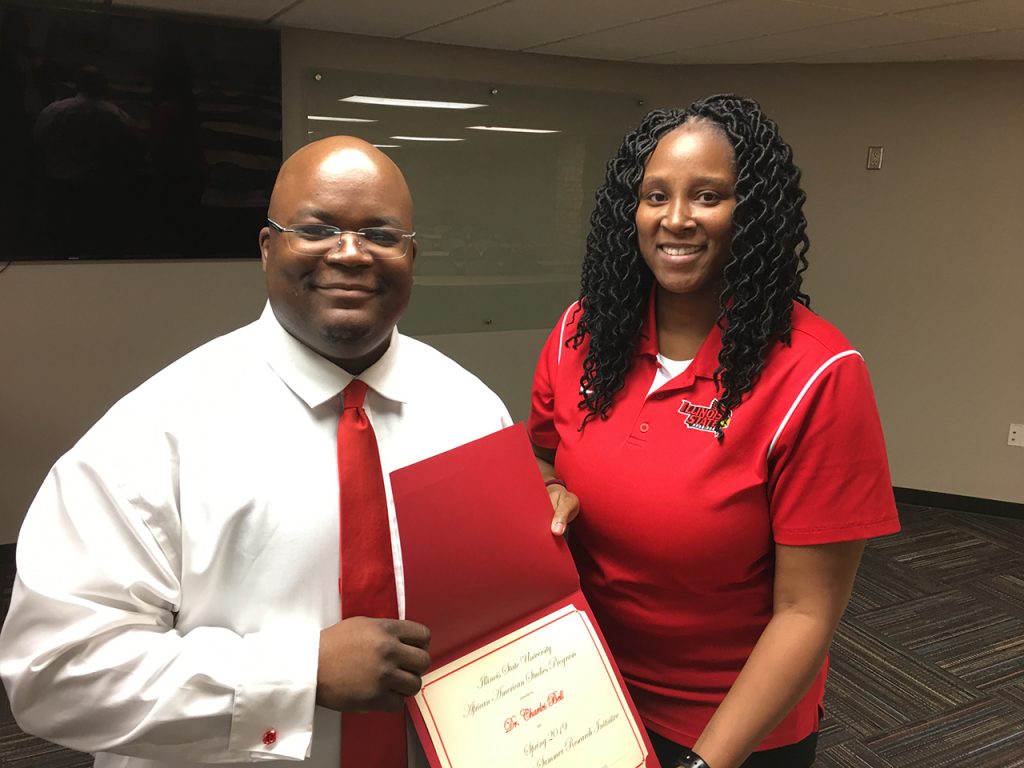
Charles Bell, left, is the inaugural winner of the African American Studies Summer Research Initiative. He received a certificate from Associate Professor Brea Banks.
Speakers called for action and attention to injustice. Dr. Charles Bell gave the African American Studies Fall Lecture on black students’ and parents’ perceptions of school discipline. Dr. Winfred Avogo talked of early marriage in West Africa. Dr. Chelsea M.E. Johnson explored her studies into the meanings and politics of blackness and the influence on children’s literature. Scientist and author of How to Bake Pi Eugenia Cheng spoke of gender in mathematics. Col. David Rabb reflected on the forgotten moral injuries to soldiers and veterans.
AsiaConnect looked to shared experiences via social media with Asian Heritage Week. The ISU Planetarium examined Mayan archaeological sites and their connection to the universe with Mayan Archaeoastronomy: Observers of the Universe. The Department of Health Sciences sponsored the showing of the unflinching story of women doctors in the Syrian war with the documentary, The Cave.
Illinois State Athletics held its first-ever Pride Night, and continued to honor breast cancer survivors with the annual Play for Kay. Adaptapalooza showed therapeutic recreation students working to give people the tools to experience the benefits of activities, sports, and recreation without limits. People had the chance to explore Capoeria, an Afro-Brazilian art form that encompasses folkloric traditions, oral history, dance, and song into a martial art.
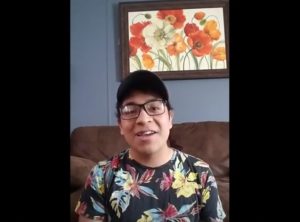
2019 alum Rocky Roque speaks to 2020 graduates for the Lavender Graduation recognition ceremony video.
Throughout the fall semester, the International Seminar Series provided weekly opportunities for the campus and community to explore topics on China. Feminist Fridays with ISU Women’s, Gender, and Sexuality Studies offered space for critical conversation. Other Extending Empathy Project talks from the Department of Psychology included a series of talks, workshops, panels, and round-table discussions that featured Dr. Byron Craig co-hosting a talk on the historical legacy of structures of racism, and Dr. Kathleen O’Gorman presenting “Children in Cages: Speaking of the Unspeakable.”
Wrapping up the year, graduation recognition ceremonies moved online with images, videos, and well-wishes shared.
Forward momentum
Amid calls for lasting change, the University took steps to move forward.
Illinois State University President Larry Dietz convened a workgroup comprised of university administrators and representatives from Student Government Association, the Black Student Union, and the Black Homecoming Committee to discuss antiblackness on campus and across the nation. The group took part in Crossroads Antiracism Organizing and Training. Dietz also formed the Diversity and Inclusion Advisory Council, named Professor Doris Houston as the interim for the new role of assistant to the president for diversity and inclusion, and announced the location for the new campus Multicultural Center that would be slated to open during the 2020-2021 school year.
Other administrators joined in training, and expanded opportunities for faculty and staff to weave the tenets of diversity, equity, and inclusion into the classroom. Administrators in Student Affairs took part in anti-bias training from Crossroads Antiracism Training and University Housing staff members received training from the Ceceilyn Miller Institute. The Office of Equal Opportunity and Access implemented a new follow-up protocol to addressing reports of bias.
 After nearly a year of effort from campus-wide collaborators under the Office of the Provost, the Framework for Inclusive Teaching Excellence (FITE) professional development guidelines were released. FITE will be infused into professional development across campus with the help of the Growth Change Team. The office also kicked off a series of microaggression trainings available to all faculty, established an Undergraduate Student Advisory Board to provide advice and guidance, and formed the University Faculty Mentoring Network (UFMN) to support the personal and professional development of new tenure track faculty.
After nearly a year of effort from campus-wide collaborators under the Office of the Provost, the Framework for Inclusive Teaching Excellence (FITE) professional development guidelines were released. FITE will be infused into professional development across campus with the help of the Growth Change Team. The office also kicked off a series of microaggression trainings available to all faculty, established an Undergraduate Student Advisory Board to provide advice and guidance, and formed the University Faculty Mentoring Network (UFMN) to support the personal and professional development of new tenure track faculty.
In an effort to recruit and retain more diverse faculty, the University is pursuing a “cluster hiring initiative” designed to recruit faculty working in interdisciplinary areas with joint appointments in programs such as Women’s, Gender, and Sexuality Studies; African American Studies; and Latin American and Latino/a Studies. Staff in Human Resources obtained their Diversity Recruiter certifications, providing additional tools and resources to locate and extend outreach to candidates from underrepresented backgrounds. Human Resources also expanded training to include cultural competency courses.
University Police continued diversity and inclusion-based trainings, taking part in workshops that included the Fundamentals to Authentic Inclusion, Microaggressions, Privilege and Power, Stop the Hate, and Understanding Disability.
The Inclusion, Diversity, Equity, and Access in U.S. Society graduation requirement (IDEAS) moved to the Academic Senate for discussion and potential approval as part of an effort to diversify the curriculum.
The ongoing Foundations of Diversity and Inclusion seminars from the Center for Teaching, Learning, and Technology seminars tackled tough questions involving culture, identity, and responsive teaching. The College of Arts and Sciences (CAS) invited faculty and staff members from across campus to attend sessions in a professional development series aimed toward serving diverse learners.
Highlighting change makers
Organizations working toward inclusion celebrated milestones at Illinois State. Pride members looked back at 50 years of advocating for LGBTQ+ rights. The faculty/staff affinity group Organization of Latino Employees (OLÉ) recalled 30 years of forging connections. The student-led Body Project program honored 10 years of challenging negative talk and images surrounding bodies.
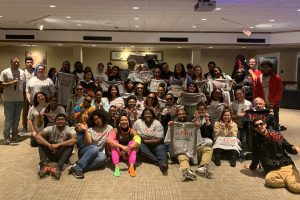
The Illinois State TRIO program at the first ever First Generation Celebration 2019 trying Fontenelle’s dance therapy.
Registered Student Organizations (RSOs) forged affinity. First-Gen Redbirds aimed to change negative narratives surrounding first-generation college students. The national Society for Advancing Chicanos/Hispanics & Native Americans in Science (SACNAS) assisted student researchers to prepare for careers and promote scholarship. Black Girl Code (BGC) sought a forum to bond and bring to light social injustices happening to black American women across the country. Women in Technology provided opportunities to inspire a love of STEM (science, technology, engineering, and mathematics). Progression of Generations continued its mission to unite college men in the bond of brotherhood with mentoring, leadership, and development. The Association for Women in Communications honed networking and professional development connections.
Members of the Illinois State family were honored for their work in diversity and inclusion with the Living Our Values Awards. Angell Howard of the Division of Student Affairs and Dr. Aslihan Spaulding of the Department of Agriculture were both featured for their efforts. Dr. Maura Toro-Morn was named the recipient of the 2020 David A. Strand Diversity Achievement Award. Criminal Justice Sciences faculty member Dr. Miltonette Craig was nationally recognized as a 2020 Emerging Scholar by Diverse Issues in Higher Education. Doctoral student Jonah Mixon-Webster was awarded a coveted 2020 Windham-Campbell Prize. Chereka Dickerson won the Sorenson Award for a dissertation on black women’s autobiographical voice.
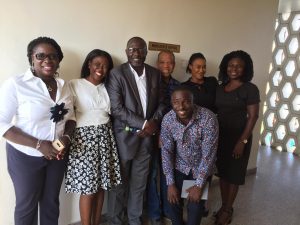
(Center) Abdourahmane Thiam and Agbenyega Adedze (right of Thiam) met with members of Ghana’s Ministry of Finance.
Students, faculty, and staff shined with purpose and passion. Two Illinois State students, Diego Hernandez and Ana Belmonte, worked with the University’s TV-10 station to create pieces for the morning news show on Univision Chicago. Drs. Abdourahmane Thiam, Doris Houston, and Agbenyega Adedze journeyed to Ghana to share ideas with government officials, leaders of private industry, and university scholars. Jasmine Dandridge related the experience benefitted from the LGBTQ+ Student Support Fund. School of Social Work’s Jerey McKinney shared her journey to emphasize the mental fortitude students will need for their chosen profession. Dr. Erin Reitz provided insights on her experiences to explain barriers to health care for transgender individuals.
Exploring scholarship
The University became home for grant-funded initiatives to advance inclusion work. The Mennonite College of Nursing was awarded a $2.8 million Advanced Nursing Education Workforce grant from the U.S. Health Resources and Services Administration to expand the work of training nurses to serve rural and underrepresented populations. Drs. Maribeth Lartz and Mindy Ely earned a $1.23 million grant from the U.S. Department of Education to assist students in their future work with infants and toddlers who are blind or deaf and their families. Dr. Willy Hunter led a multi-state team that received a $2.9 million grant from the National Science Foundation to assist mathematics and science teachers in high-needs schools.
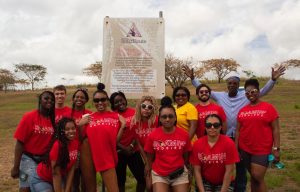
Students experienced the Slave Route and Newton Slave Burial Ground in Barbados with tour guide, retired Dr. Trevor Marshall (far right) Photo by Gabby Thompson.
Education students in the Equity and Diversity Cohort of Drs. Shamaine Bertrand and Erin Quast partnered with Decatur Public Schools to give students an opportunity to explore social justice, equity, and restorative practice in teaching. Students explored “Multicultural Reflection and Engagement in Barbados” with Dr. Tina Thompson and Dr. Keith Pluymers. Studying the farm-to-table food systems in Argentina was the goal of students of Drs. Aslihan Spaulding and Amy Bardwell. Students in China and in Normal took part in Designing Authenticity: Shanghai–Normal, which aimed to raise awareness of heritage and cultural identity through the design of letter forms.

Professor Venus Evans-Winters’ seventh book examines black women’s role in the qualitative research process.
Faculty research scholarship generated new books to add to the scholarship of equity. Dr. Venus Evans-Winters pieced together the identities and experiences of black women to offer a more ethical, authentic way to share their lives with Black Feminism in Qualitative Inquiry (BFQI). With Dakota in Exile: The Untold Stories of Captives in the Aftermath of the U.S.-Dakota War, Dr. Linda Clemmons looked at how the Dakota people endured in the years following the war.
Dr. Touré Reed challenged the idea that lingering racial disparities in wealth, employment, and incarceration are owed—in large part—to liberal policymakers’ failure to recognize the impact of racism on black Americans with Toward Freedom: The Case Against Race Reductionism. Dr. Roberta Trites explored the newest ideas in feminist writing as seen through the characters in young adult literature with Twenty-First-Century Feminisms in Children’s and Adolescent Literature. Dr. Ela Przybylo pushed back against long-held misconceptions about asexuality in her book, Asexual Erotics: Intimate Readings of Compulsory Sexuality. The Obsidian Literature and Arts in the African Diaspora journal continued the publication of scholars in the creative realm of research and visual artistry and poetry, including the work Obsidian Speculating Futures: Black Imagination and the Arts.
African American Studies announced initiatives to enhance studies of the field, including a faculty interdisciplinary grant, a faculty summer research initiative, and undergraduate merit scholarships.
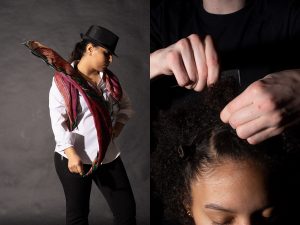
Image of Shahrzad Hamzeh’s Persian Dance and Radiance Campbell’s Consent and Intent images from the Image of Research Competition.
The showcasing of research opportunities opened doors for conversations and exploration of diversity and inclusion. The inaugural Image of Research at Illinois State competition highlighted the work of several students, as did the University Research Symposium. Research opportunities continue as the Center for Civic Engagement and Service Learning partnered with the Prairie Pride Coalition to sponsor research on the inclusivity of sexual orientation and gender identity diversity within Bloomington-Normal religious/spiritual establishments.
The above items are just some of the initiatives, events, and efforts supporting the value of Diversity and Inclusion. All are stories that can be found in the Identity newsletter. Find more information about Identity here.
